Estate Planning Strategies
There are a lot of different ways to plan your estate, starting with the simplest one of all – doing nothing. You could give it all away, or utilize different ownership structures, like a life estate or a joint tenancy. Perhaps a Will, or maybe one (or more) of the many different Trusts that are available. So how do you know which is the right one? Well, the quick answer is, “it depends” on your wishes. You see, every option has strengths and weaknesses.
DO NOTHING?
It certainly is the simplest and the easiest…. for you. You don’t need to think about what’s going to happen when you die, and you don’t need to bother with any documents or plan anything – let your heirs take care of that. And what a mess you’ll leave behind! Someone is going to have to be responsible for figuring out who should get what. Let’s start with who your heirs are. That really comes down to state law, and Florida’s laws for intestacy (that’s the legal term for dying without a Will) has 11 sections and over 30 sub-sections to determine who should inherit your assets. The worst part is, you may not even know some of the people who may inherit!
A while back I had a client at our law firm who had been taking care of her half-brother for years, while he had been incapacitated. She had managed his affairs so well that his estate had grown quite large while he was hospitalized. When he passed away, part of the estate ended up going to my client, who had been taking care of him for years. But part of the estate, well, the attorney handling the probate found out that his great grandfather had left behind some children in Norway, back when he first came here, and those children had living descendants who were more than happy to receive a very sizeable distribution from some long-lost relative they didn’t know existed!
Perhaps doing nothing might not be such a good idea for effective estate asset protection.
SPEND IT ALL!
If we spend it all, then there won’t be anything left. Yay, you avoided probate, or the need to divide up your assets. But what do you need to know if you’re going to spend it all? … When you’re going to die. The last thing you want is to spend it all and still have quiet a few years left. Generally speaking, people don’t know when they’re going to pass away. Of course, I do recall one young lady who informed me that her uncle knew both the date and time he would die; when I inquired how he knew, she said “the judge told him”!
For the rest of us, this simply isn’t an option.

GIVE IT AWAY!
This is similar to, but not quite the same, as the idea of spending it all. Let’s start with the obvious – you could face the same problem, giving it all away too soon. But let’s assume you have loved ones who will take care of you, and you give it all to them. Well, then you’re at their mercy. Maybe your son doesn’t love you quite as much as you think. Or maybe your daughter has a spending habit that’s less than responsible. Or even if your loved ones are true paragons of virtue, their spouses may not be! If they get divorced, their exes can end up with your assets.
SPLIT OWNERSHIP – JOINT TENANCY
Which brings up the issue of clever ownership structures – a Life Estate or Joint Tenants with Rights of Survivorship. Joint tenancy (with rights of survivorship;) is where two (or more) people co-own an asset, and when one person dies, the other owns it in full. It’s very important that the words “with rights of survivorship” are included, because otherwise, it doesn’t work.
In Florida, a related type of ownership is tenant by the entirety, which is the almost same as a joint tenancy, but is exclusive to husband and wife, and provides some extra protections. Apart from the need to be very specific, there are two problems with Joint Tenancy with rights of survivorship – first, it only avoids probate if one person dies, there’s no solution when the second passes away. Second, an important part, you’re at risk for anything that goes wrong with that person – not only can he or she give away your their asset (remember, they’re co-owner), it can also be lost to his or her creditors!

SPLIT OWNERSHIP – LIFE ESTATE
A life estate is a situation where you split the property into (time for some lawyer speak) a present interest and a vested future interest. In plain English, you’re giving away ownership of the property as of the date of your death. However, the gift is effective right away. That means that the person you give it to already has an interest in the property – even though that interest doesn’t transfer until then. Such interest is an asset that can be seized by creditors or lost in a divorce.
I know of one farmer who decided to pass along the farm to his son, who was helping him farm and was going to take over the farm, through a life estate. Unfortunately, the young man got into a car accident and passed away. The Remainder (as the future part of the life estate is called) passed to his wife, who later got remarried and had children with her new husband. Those children, who have no relationship with, or connection to, the farmer are going to inherit the land when he passes away, and there’s nothing he can do about it.
ENHANCED LIFE ESTATE
Luckily, Florida came up with a solution! It is one of five states that allow for an “Enhanced Life Estate” (also called a LadyBird deed), which allows you to have your cake and eat it too. More specifically, it’s a life estate where the Grantor reserves the right to change who the beneficiary will be. This solution is only available for real property, and these are rather complicated, and you should consult with an attorney familiar with these kind of deeds.
PAY-ON-DEATH
While a life estate deed is only available for real property, a Pay-On-Death designation is only available for certain financial assets. Some financial accounts allow you to fill out a form that specifies who will receive the account when you pass away. It’s quick, easy, simple, and effective. Except that you need to pro-actively request it, and you’ll need to submit new forms to every company when you want to make a change. Too bad this isn’t available for everything.
(Additionally, you can’t build in any contingencies, but that’s for another article)
LAST WILL AND TESTAMENT
The good news is, with a Will you do get to decide where your assets go. Or do you? Under the laws of Florida, your spouse is entitled to a share of your estate, no matter what your Will says. But the bigger issue with a Will is that your estate will have to go through probate.
Probate is a legal proceeding to transfer assets from a deceased person to a living person. While you’re alive, you can sign the title to your car, the deed to your property, etc. When you’re gone, you can’t sign anymore. This is where the court steps in. A personal representative will be appointed who is authorized to sign on your behalf. This is a long and tedious process. The court may need to decide who the best personal representative would be. The court will also freeze your estate for long enough to give any creditors and claimants a chance (three months in Florida). Then the personal representative needs to gather up all your property, then sell (some of) the property, and finally split the proceeds between the heirs. Probate typically takes between six months and two years, but if the estate is very complicated, or if there are lawsuits, it can last much longer, with the oldest open probate matter this author is aware of having been opened in 1929.
During this time, there will be court fees, attorney fees, personal representative fees, and a plethora of other fees. Many states set a statutory rate as a percentage of the total, which in Florida can be as high as three percent for the attorney, and another three percent for the personal representative (for a total of ten percent), while other states require that the attorney and personal representative will charge an hourly fee, and boy do those hours add up!
TRUST
Last, but not least, comes the TRUST. Well, not “the Trust”, but “a Trust”. You see, there are as many different types of trusts as an attorney can come up with, with a million different purposes and effects. There’s a testamentary trust (created by will), a revocable trust (meaning you can make changes to it later), and an irrevocable trust (meaning you can’t). But then there are specialty trusts like a gun trust, a pet trust, an insurance trust, and more – but they don’t all have pretty names, some of them are a veritable alphabet soup: QPRT, QDOT, IDGT, GRIT, GRAT, GRUT, CLUT, CLAT. And that’s just the more common ones.
Don’t let that confuse you. To keep it simple, a trust can do (almost) whatever you want. It can avoid probate, protect your assets from creditors, stay with your kids if they get divorced, protect your children from themselves if they have drug or alcohol problems. There are trusts that can own your gun, pet, or insurance policy. Whatever you want to achieve, a well-crafted trust can probably do it.
Trusts are incredibly versatile, but that also means that the drafter needs to know what he or she is doing – even the most perfectly drafted trust for one person can be completely wrong for another. Therefore, you will want to consult with an estate planning attorney who specializes in Trusts.
If you’re at all concerned about Estate Planning in Southwest Florida, you should contact us at (239) 791-7950 for a free consultation, to figure out which method is best for you, and your family estate.
ABOUT ALOIA, ROLAND, LUBELL & MORGAN, PLLC
Aloia, Roland, Lubell & Morgan, PLLC is a full-service law firm with practice areas in business and real estate law, commercial litigation, personal injury and wrongful death, civil litigation, family law, estate planning and probate. Established in 2004 and led by senior partners, Frank Aloia, Jr., Ty Roland, Evan Lubell, Jack Morgan III, and partner, Danielle Levy Seitz, the firm has deep roots in Southwest Florida, proudly serving its community. Aloia Roland is headquartered at 2222 Second Street in downtown Fort Myers, Florida. Learn more at www.LawDefined.com or call (239) 791-7950.


